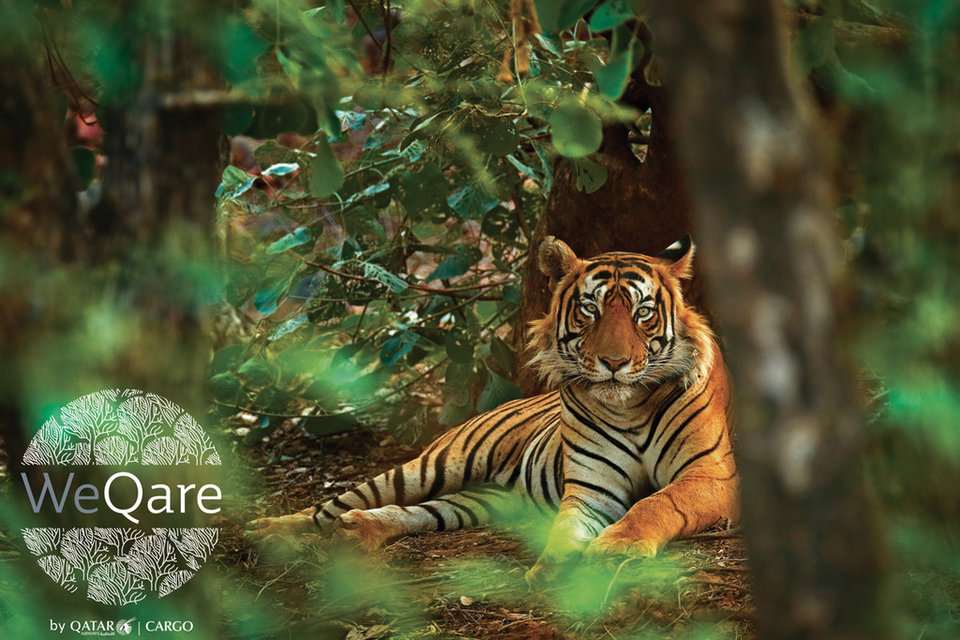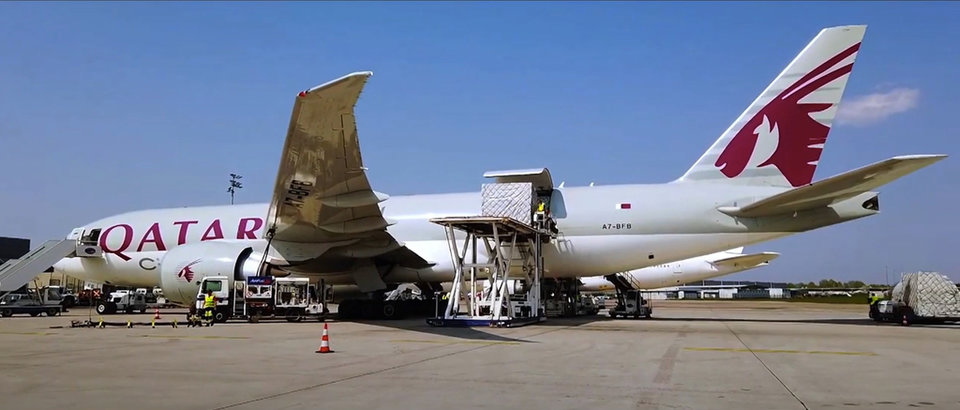Conservation
Q&A: Flying animals back to their habitat with Qatar Airways
After signing the Buckingham Palace Declaration against animal trafficking, Qatar Airways started the second chapter of its sustainability programme, which aims to fly animals back to their natural habitat at zero cost. Ilaria Grasso Macola speaks to Qatar Airways’ UK and Ireland manager Gary Kershaw to find out more about the project and the need for aviation to contribute to animal conservation and sustainability.
In the last few years, a huge rise in illegal animal trafficking has brought the issue to the public eye, prompting a response at the political level.
Of the many political efforts made, the 2016 Buckingham Palace Declaration stands out as it gathered animal conservation and transport industry stakeholders to agree to strengthen the measures against illegal trafficking of wildlife.
Among the many airline signatories was Qatar Airways, which was already a member of the United for Wildlife Transport Taskforce, and recently launched the WeQare programme, which through different ‘chapters’ of action aims at incorporating sustainability into the company’s daily operations.
Qatar Airways UK and Ireland country manager Gary Kershaw explains how the project came about and why bringing animals back to their natural habitat is an important part of sustainability.
Ilaria Grasso Macola: What was Chapter 1 WeQare focused on? How did it work?
Gary Kershaw: The leadership team of Qatar Airways Cargo came together to brainstorm a number of ideas on how we could make sustainability applicable to our everyday life through a series of concrete actions designed for the industry.
Hence, partly triggered by the Covid-19 pandemic and given that sustainability is top of our agenda, WeQare was launched in the summer of 2020. Through the first Chapter, one million kilos of capacity was donated to selected customers who then allocated it to the charities of their choice to transport humanitarian aid, medical supplies and PPE.
Let’s talk about Rewild the Planet. What was the rationale behind the decision to focus on flying back animals?
Since wild animals preserve the ecological balance which affects our planet’s wellness, which in turn affects all of us, we thought it was time to introduce Rewild the Planet.
Qatar Airways is already engaged in the fight against illegal trafficking of wild animals, and we have performed a number of repatriation operations.
Through this second chapter of WeQare, our sustainability programme strengthens our commitment to wildlife and is consistent with the airline’s commitment to fighting wildlife trafficking and illegal trade of wild animals. Our employees are the ones who enabled the transportation of one million kilos, and they will be the force behind the transport of wild animals for Chapter 2.

Qatar Airways say they are dedicated to conservation and helping animals get back to their rightful homes.
How will the programme work? How many and what kind of animals are talking about? Where are they coming from?
If anyone or an NGO wants to ship wild animals back to their natural habitat, then Qatar Airways will move it free of charge. Chapter 2 is all about wildlife, the purpose is to bring wild animals home, to where they belong so commercial transportation of exotic animals is not applicable to this programme.
We have started to receive a few inquiries since the announcement of Chapter 2, the first inquiries being to move lions and rhinos. Looking back at our past animal movements for conservation, a number of those have been to Africa and Asia, where we have an extensive network, so a number of the key conservation destinations can be reached via our gateways.
Of course, there will likely be ground transportation required when we land which is arranged by the conservation organisations. In case of specific requests to destinations not part of our network, we will evaluate all options and make the best decision in terms of both, the animal’s welfare, as well as operational feasibility.
The programme is free of charge. How will Qatar Airways Cargo cover the costs of the operation?
There are many NGOs who do their best to move wild animals back to their natural habitat and most of the animals are taken away from the wild for entertainment for the most part.
I talked to a number of NGOs, who volunteer and spend their resources including, sometimes, bearing the cost of transport. The biggest hurdle for most of them after they complete all legal and regulatory procedures is the cost.
I firmly believe that the cost of repatriating wild animals to their natural habitat should not be a hindrance, especially when it benefits our entire planet. Therefore, Qatar Airways will be donating the transportation of those animals and the cost will be borne by the airline.
You announced that you will be launching more Chapters in the coming months. What will they focus on?
WeQare is a meaningful project, supported by our employees.
It is a dynamic programme, with a few Chapters that are under construction while a few chapters have already been launched. WeQare will carry on indefinitely and all chapters will have sustainability at the core of each chapter.
I am very happy with the progress of WeQare so far, it gives our employees and everyone who is part of this project, a sense of purpose and fulfilment as in the end, such noble deeds benefit both, the giver and the receiver and it has a ripple effect, inspiring everyone in the society to do good.

Qatar Airways are dedicated to helping fight animal trafficking by vowing to return wild animals to their natural habitats through free flights.
You are one of several airlines to have signed the Buckingham Palace Declaration. Is this a positive step towards aviation playing a more central role in sustainability and animal rights?
Qatar Airways has a zero-tolerance policy towards the illegal trade in wildlife. Through delivering our commitments to the United for Wildlife Transport Industry Declaration, signed in March 2016, we have implemented measures to raise employee and passenger awareness and to improve the detection of illegal activity.
What about your environmental policy? Are there any areas where you could improve?
Qatar Airways is committed to leading and meeting the highest standards of environmental management in the aviation industry. Qatar Airways has also recently launched a new programme that enables passengers to voluntarily offset the carbon emissions associated with their journey at the point of booking.
In your opinion, what will the future bring for sustainability in the aviation sector?
As an international airline operating across the globe, we recognise the need to balance business operations with long-term corporate sustainability goals and objectives. Our corporate environmental and sustainability strategy aligns with local and international standards and best practice for protecting the environment and society in order to foster the greatest potential for positive influence.
Main image: Qatar Airways’ UK and Ireland manager Gary Kershaw. All images credit: Qatar Airways